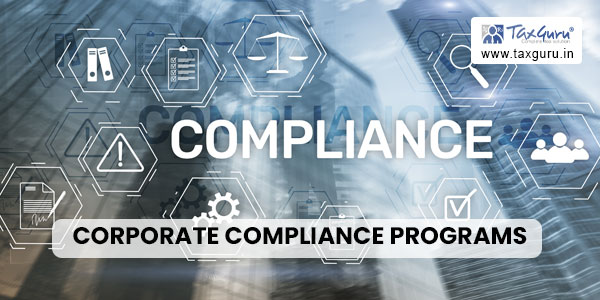Introduction:
In today’s economic environment, corporate compliance programs are vital, supporting organizations in navigating the complex web of rules, regulations, and ethical standards. By adhering to these standards, businesses can decrease legal and reputational risks, maintain stakeholder trust, and foster an integrity culture. This article examines the importance of corporate compliance programs, the legal obligations they impose, the role of compliance officers, the implementation of internal controls, and the potential consequences of noncompliance.
Understanding Corporate Compliance Programs:
Definition and Purpose: Corporate compliance programs are defined as systematic frameworks meant to assure compliance with legal and regulatory obligations.
Risk Management: Discuss how compliance programs assist organizations in identifying, assessing, and mitigating legal, financial, operational, and reputational risks.
Ethical Standards: Highlight the importance of compliance programs in fostering ethical behavior and matching firm practices with society’s expectations.
Legal Obligations for Companies:
Regulatory Landscape: Investigate the various rules and regulations that govern various industries, including anti-corruption, data privacy, consumer protection, environmental restrictions, and others.
Compliance Frameworks: Discuss industry-specific compliance frameworks and standards that businesses can use to ensure compliance with relevant laws and regulations.
Duty of Care: Explain how firms are required by law to undertake due diligence in comprehending and complying with applicable rules and regulations.

The Role of Compliance Officers:
Responsibilities and Expertise: Outline compliance officers’ major tasks, which include monitoring regulatory developments, devising policies and procedures, providing direction to employees, conducting internal investigations, and supervising training programs.
Independence and Autonomy: To maintain objectivity and impartiality, emphasize the need for compliance officers’ independence from other activities inside the organization.
Reporting Structure: Discuss the reporting hierarchy of the company’s compliance officers and their direct access to the board of directors or senior management.
Implementing Internal Controls:
Risk Assessment: Describe how risk assessments are conducted across the organization to identify and prioritize areas of compliance risk.
Policies and processes: Discuss the development and execution of policies and processes that address specific compliance requirements while ensuring clarity, comprehensiveness, and accessibility.
Training and Education: Stress the importance of frequent training programs to educate staff on their compliance responsibilities and the potential penalties of non-compliance.
Monitoring and Auditing: Investigate the use of monitoring tools, audits, and internal reviews to evaluate the efficacy of compliance controls, discover flaws, and start remedial actions.
Consequences of Non-Compliance:
Legal and Financial Penalties: Discuss the potential legal implications of noncompliance, such as fines, penalties, legal proceedings, and damage to the company’s reputation.
Risks to a company’s reputation: Highlight the impact of non-compliance on its brand image, stakeholder trust, customer relationships, and investor confidence.
Regulatory Actions: Investigate regulatory enforcement measures that may be enforced for non-compliance, including investigations, sanctions, consent decrees, and license revocations.
Conclusion:
Corporate compliance programs are essential in today’s corporate environment, assisting organizations in meeting legal and regulatory duties, mitigating risks, and cultivating an integrity culture. Organizations can protect their interests, maintain public trust, and ensure sustainable growth in a highly regulated world by establishing robust compliance frameworks, appointing dedicated compliance officers, implementing effective internal controls, and emphasizing the consequences of noncompliance.





